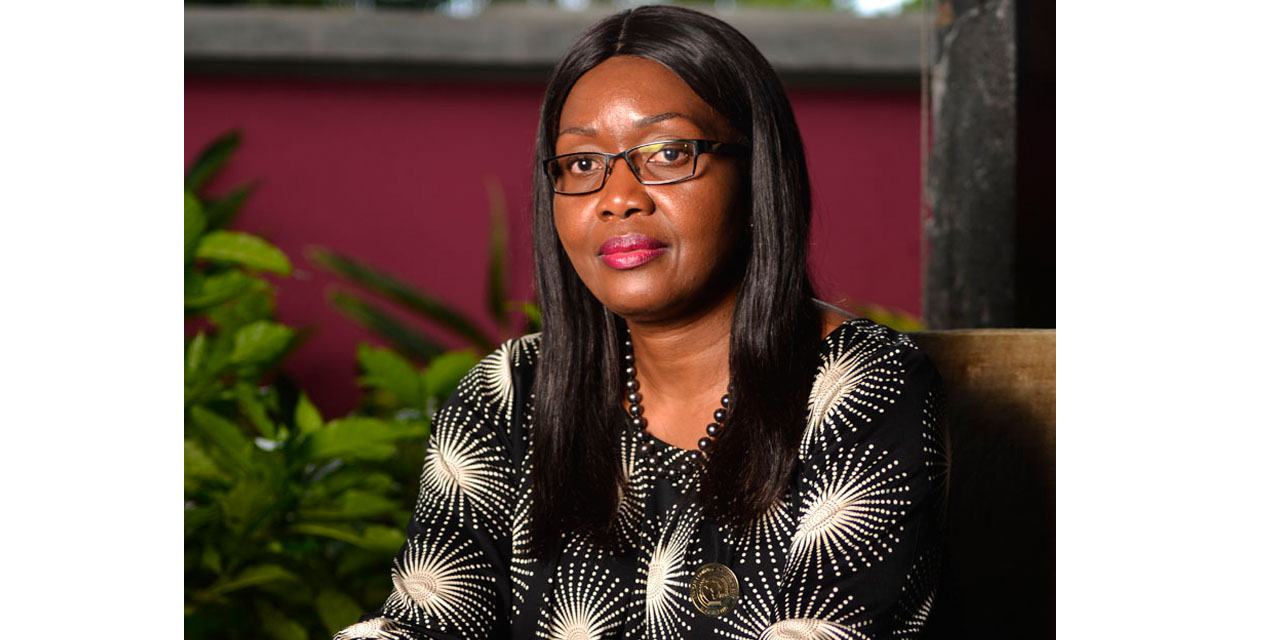Stefanus Nashama
Prime Minster Saara Kuugongelwa-Amadhila yesterday called for the appointment of a United Nations Special Envoy on water, saying that access to water for all requires bigger investment and coordination among sectors and different development partners.
She stated that there is a strong need for the global water community to engage and share technical expertise to accelerate efforts towards meeting water-related Sustainable Development Goals (SDG), beyond the UN 2023 Water Conference.
Kuugongelwa-Amadhila made these remarks at the United Nations conference on the Midterm Comprehensive Review of the Implementation of the Objectives of the International Decade for the action of water for Sustainable Development, 2018-2028. The conference started on Tuesday and will end today, in New York.
“My delegation strongly believes the appointment of a UN Special Envoy on Water would go a long way towards improving coordination amongst various agencies and bodies currently dealing with the issue of water and help turn it from an internal body to a Membership based body,” she stated.
The Prime Minister also indicated that water needs a dedicated champion to put its cardinal relevance to the preservation of life, development, peace and security centre stage.
According to Kuugongelwa-Amadhila, in the quest to achieve SDG 6 and its national development objectives, Namibia has prioritized and enshrined the water and sanitation sectors into key strategic areas of policy planning.
She indicated that statistics show about 97 percent of citizens in urban areas have access to potable water, while in rural populations, the figure stands at 87 percent access to potable water.
At the national level, the Namibian Government’s funding to water for the next five years has been strengthened to address water infrastructure development and rehabilitation of pipelines in the coastal areas, Kugongelwa-Amadhila said.
This includes the development of feasibility studies for a desalination plant and a Master Plan Study for the North Central Areas.
She said these initiatives should move Namibia towards meeting SDG 6 and water security across the Namibian population.
However, the Prime Minister said the lack of perennial rivers in the interior of the country has been a limiting factor for development.
She further said Namibia is one of the driest countries in sub-Saharan Africa, with a semi-arid climate, adding that this has resulted in Namibia compounded by water scarcity and high evaporation rates.
The Prime Minister emphasized it is for that reason effective water resources management in Namibia has become fundamental to meeting SDG 6.
“As a broad policy objective, Namibia strives to ensure equity in access to water and safely managed sanitation, especially for rural agrarian communities,” she said.
Kuugongelwa-Amadhila also put it to light that at the Continental level, Namibia welcomes and supports the Continental Africa Water Investment Programme (AIP), adopted by the Africa Union Commission and its Ministerial Council on Water (AMCOW), with the aim to leverage US$30 billion annually in climate resilient water investments for Africa by 2030.
She stressed this will speed up investment into climate resilience at regional, transboundary and national water governance for infrastructure for the socio-economic development of the continent.
Kuugongelwa-Amadhila said due to the link between access to sanitation for all and human dignity, Namibia has identified the need to improve universal access to sanitation and hygiene in informal urban settlements and rural communities.




